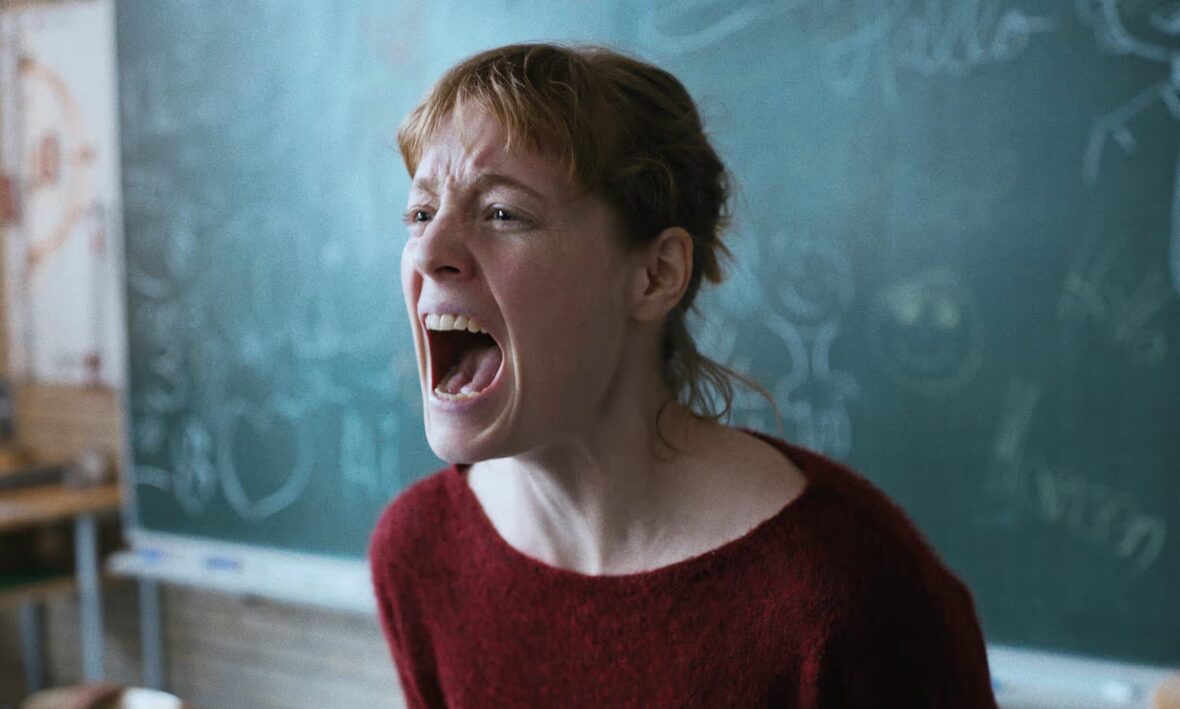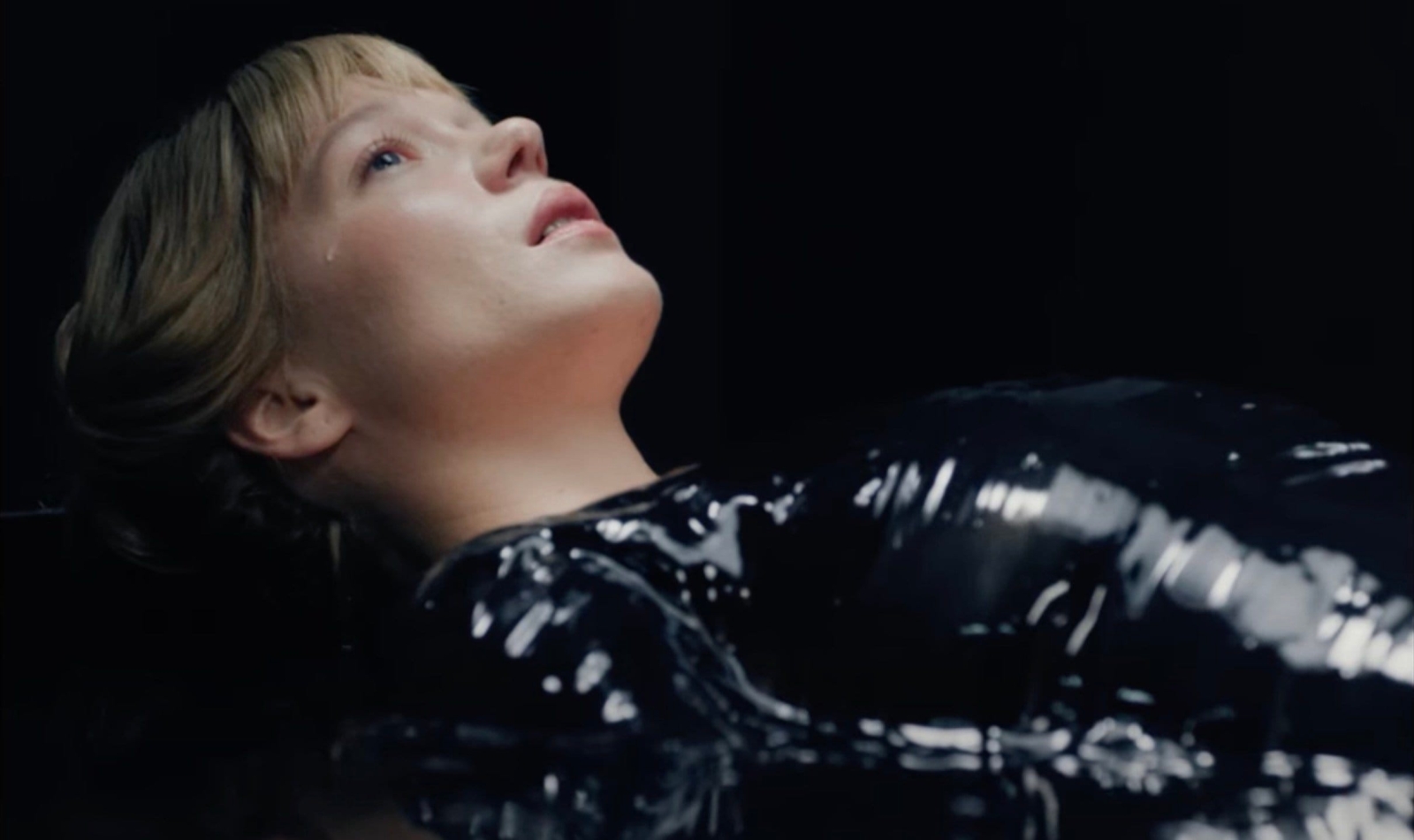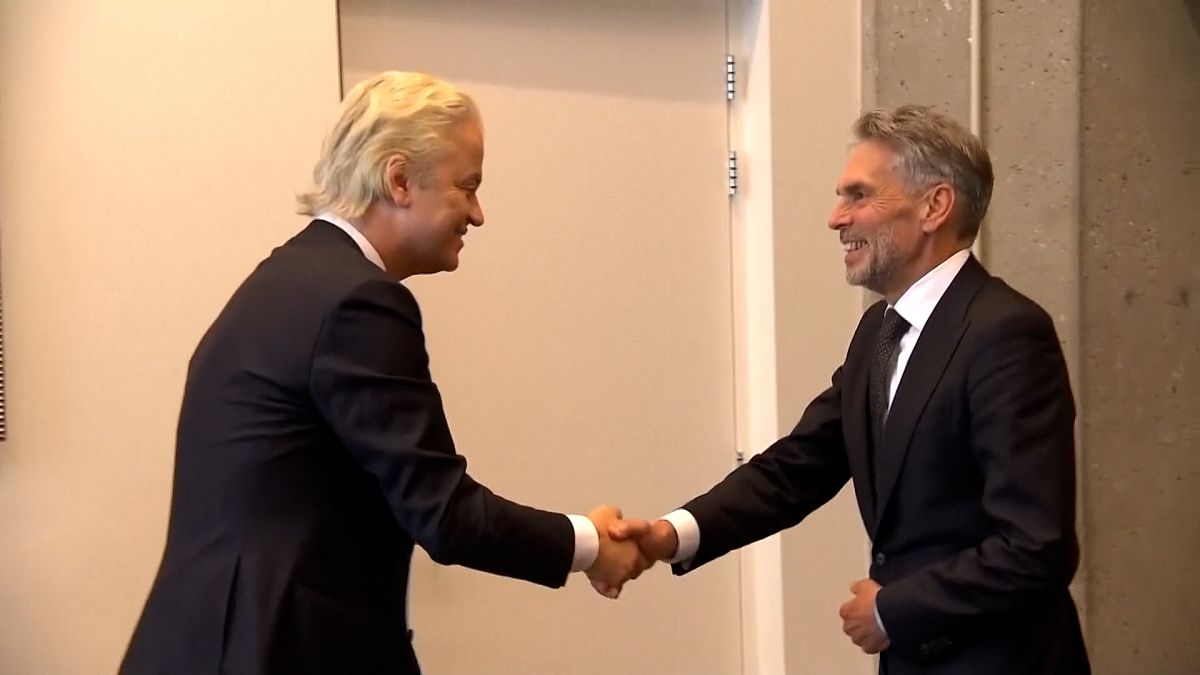Movie Reviews
‘Empty Nets’ Review: Impressive Feature Debut Is a Gritty Iranian Gut Punch About a Financially Desperate Man

A gritty slice of neorealism that would have fit in perfectly during the peak period of the Iranian New Wave, Empty Nets (Leere Netze) marks an impressive feature debut for Iranian German filmmaker Behrooz Karamizade. Premiering at the Karlovy Vary International Film Festival, this drama about a financially impoverished twentysomething desperately attempting to earn the money he needs to marry his girlfriend packs an enduring punch.
When we’re introduced to Amir (Hamid Reza Abbasi), he’s deeply in love with both the sea, in which he’s seen playfully frolicking like a dolphin in an early scene, and his girlfriend Narges (a radiant Sadaf Asgari), who obviously shares his affections. It also becomes clear that he’s a young man of integrity when he loses his job at a catering hall after loudly objecting to his boss’ decision to cancel a wedding at the last minute because of unpaid fees.
Empty Nets
The Bottom Line Socially conscious neorealism at its best.
Venue: Karlovy Vary International Film Festival (Crystal Globe Competition)
Cast: Hamid Reza Abbasi, Sadaf Asgari, Keyvan Mohamadi, Pantea Panahiha, Ali Bagheri, Behzad Dorani, Mehrdad Bakhshi, Mojtaba Bahmani, Ali Mohseni
Director-screenwriter: Behrooz Karamizade
1 hour 41 minutes
Narges, who works in a bakery from which she’s constantly bringing Amir treats, comes from an upper-class family. This creates a problem, since her parents are expecting a significant amount of money from Amir for their daughter’s hand. Even his single mother (Pantea Panahihia) tries to dissuade him from getting married. Unable to find work locally due to the region’s dire financial climate, Amir resorts to accepting a job at a fishery located a significant distance away on the northern Caspian Sea coast, necessitating lengthy separations from Narges.
It’s clear from his arrival that the fishery is a shady operation, with its owner demanding money for Amir’s food and board in advance. When the nets pull in large amounts of plastic and other refuse from the sea along with the fish, Amir gets reprimanded for attempting to dispose of it properly. He’s instructed to throw it back in the sea, since it’s already full of garbage. Then, when he gets his first paycheck, he discovers that more money has been withheld.
Nonetheless, he excels at the work thanks to his strong swimming abilities and even manages to earn some extra cash competing in an eel-catching gambling competition. When he figures out that the fishery is poaching endangered sturgeon and involved in the black-market caviar trade, he volunteers to participate despite the dangerous underwater work involved. (Be advised that the film, which includes footage of fish being gutted for their eggs, may turn you off caviar forever.)
The pressure on Amir gets more intense when he discovers that Narges’ father is having her meet a wealthy young man with a view to an arranged marriage. So despite Amir’s initial reservations, he agrees to smuggle a co-worker (Kevyan Mohamadi) out of the country in a small boat during highly dangerous weather conditions.
Lead actor Abbasi powerfully conveys Amir’s gradual transformation from a light-hearted, morally upright young man to someone desperate to do whatever it takes not to lose his intended bride.
Along the way, writer-director Karamizade provides a vivid sociological snapshot of the country’s harsh financial environment, including rampant corruption and high unemployment, forcing its people to resort to extreme measures to survive. The expertly gloomy, overcast cinematography by veteran Iranian DP Ashkan Ashkani adds greatly to the film’s oppressive atmosphere, as does the realistic depiction of the brutally difficult conditions under which Amir works. The film becomes steadily darker, both visually and figuratively, as those all-too-allegorical fishing nets, which at one point pull in a dead body, seem to be engulfing its struggling protagonist.
Empty Nets becomes particularly moving in its portrait of the increasingly strained relationship between the two young lovers as Narges becomes disillusioned with the man Amir is becoming. It makes for a gut punch of a film.
Full credits
Venue: Karlovy Vary International Film Festival (Crystal Globe Competition)
Production companies: BASIS Berlin Filmproduktion, Living Pictures Production, Rainy Picutres, ZDF/Das Kleine Fernsehspiel
Cast: Hamid Reza Abbasi, Sadaf Asgari, Keyvan Mohamadi, Pantea Panahiha, Ali Bagheri, Behzad Dorani, Mehrdad Bakhshi, Mojtaba Bahmani, Ali Mohseni
Director-screenwriter: Behrooz Karamizade
Producers: Eva Kemme, Ansgar Frerich, Ushci Feldges
Director of photography: Ashkan Ashkani
Production & costume designer: Shahram Karimi
Music: John Gurtler, Jan Miserre
Editor: Anne Junemann
Casting: Sanaz Ghotb
1 hour 41 minutes

Movie Reviews
Movie review: The Teacher's Lounge – Law Society Journal

Idealistic young teacher Carla Nowak (played with anxious intensity by Leonie Benesch) is a new arrival at a German secondary school. Well-meaning and empathetic, she is the conductor of a peaceful classroom. A shot of Carla from behind, her arms beautifully outstretched, suggests this is her daily orchestra. She is organised and dedicated, if a touch closed off from her fellow teachers.
But when a student of Turkish origin is accused of stealing money, and Carla’s own surveillance of the teachers’ lounge indicates the guilt of Friederike Kuhn, an administrative staff member, we realise she’s far from in control. Carla’s star pupil, Lukas (Mrs Kuhn’s son), resents the accusation aimed at his mother. The students rally around him and the teachers, divided by internal disagreements, seem almost powerless to assert control.
Long gone is the strict discipline of The 400 Blows or Dead Poets Society. The students in the film seek neither escape to the outside world nor solace in the rich inner worlds sparked by poetry. As they have been taught, these students seek answers. They seek justice. As the editor of the student newspaper boldly declares that, outside of truth, “everything else is just PR.”
The path to maturity for the students seems not to lie in compromising their ideals but in sticking to them ever more fiercely. It’s a wonderful inversion of what the Germans call “Bildung,” the tradition which examines the formative years of youth, marked as it is by a certain moral education. But the students cede no ground. They are uninterested in the murky give-and-take of the adult world. Their world is zero sum.
Indeed, it is the teachers’ uncertain sense of themselves as disciplinarians and moral leaders that provides so much fuel for the plot. They do not know who they are, and the students grasp it quickly. Carla in particular has ideals, but does she really believe in them? Çatak satirises the speed at which the right to privacy, freedom of the press, and the concept of innocent until proven guilty are upended in the search for a thief. It’s quite an achievement, especially given that thrillers are rarely satirical, and satires seldom thrilling.
The film moves so briskly that viewers can be forgiven for failing to notice that on Carla’s surveillance video, Mrs Kuhn’s blouse is patterned with little stars. It’s a knowing nod to Germany’s tragic past. That Mrs Kuhn also represents a slightly different power struggle within the school – between the teachers and the administrative staff – adds more complexity to The Teachers’ Lounge. One can only hope that the next films concerning the consequences of accusation are so richly engaging.
Verdict: Five stars
Movie Reviews
‘Black Dog’ Review: Man Bites Dog, Becomes His Best Friend in Gorgeously Offbeat Canine Caper From China

Chinese director Guan Hu’s visually stunning new feature, Black Dog, starts off with a familiar premise: After spending a decade behind bars, an ex-con named Lang (Eddie Peng) returns to his tiny native city in Northwest China on the outskirts of the Gobi Desert. He tries to integrate into regular life, but certain demons from his past come back to haunt him.
If this sounds like any number of throwaway B-movies, or like the plot of the recent Sylvester Stallone series Tulsa King, be advised that Black Dog is not that kind of thing at all. First off, it’s unclear who, exactly, the title is referring to. Is it the film’s total outcast of a protagonist, who barely utters a full sentence to anyone — including his own father — as he attempts to settle into a place that doesn’t want him? Or is it the stray black greyhound he meets in town, with whom he winds up forming a special bond?
Black Dog
The Bottom Line Not your average pup.
Venue: Cannes Film Festival (Un Certain Regard)
Cast: Eddie Peng, Tong Liya, Jia Zhang-ke, Zhang Yi, Zhou You
Director: Guan Hu
Screenwriters: Guan Hu, Ge Rui, Wu Bing
1 hour 46 minutes
Black Dog isn’t really a man’s-best-friend movie either, even if the relationship between Lang and his rabid mutt forms the crux of the plot. Set against a backdrop of urban blight and canine chaos, Guan’s highly original, deadpan thriller begins with a jarring sequence of dogs causing a bus to flip over on a desert road, only to get weirder and wilder from there. But at its heart, the film is really a classic story of redemption, taking lots of unexpected turns as it follows a down-and-out hero toward recovery.
The director’s previous efforts, including big-budget action flicks like Mr. Six and The Eight Hundred, are a far cry from the oddball tone and arthouse stylistics of Black Dog, which sits somewhere between the Coens’ No Country For Old Men and recent Chinese noirs like Diao Yinan’s The Wild Goose Lake. There’s some violence, but never of a particularly graphic kind, and there’s definitely some cruelty to animals. But the film is mostly about a very strange time and place, where men and dogs seem to be forever chasing each other around a desolate city on the verge of state-sponsored demolition.
Set in 2008 during the months leading up to the Beijing Summer Olympics, the story picks up Lang — lanky, brooding and with a shaved head — after he survives the opening bus crash and wanders into town to take up residence in his childhood home. We learn that his father has moved out and lives at the local zoo, while a mob boss named Butcher Hu (played by Chinese auteur Jia Zhang-ke) is seeking revenge for the crime that put Lang in jail for a decade, details of which are divulged much later.
The only true companion Lang makes upon his return is a mangy greyhound he runs into by one of the city’s many abandoned buildings, which is set to be destroyed in a massive urbanization plan that’s left much of the area populated by packs of stray pups. Guan makes sure to include a canine or two in nearly every shot of his movie, whether they’re silently watching the action from afar, strolling in the background, rushing through empty streets, or, in one standout stunt scene, crashing through a window.
Cinematographer Gao Weizhe’s superb widescreen images, bathed in dust and washed-out colors, constantly place Lang and his canine pal (who is never given a real name) within the vast uninhabited cityscapes and surrounding desert. With sand constantly blowing in from all sides, dogs running amok and other animals (serpents, tigers, monkeys) wandering about, it’s as if nature is taking its revenge on the forgotten town while the rest of China prepares to triumph when the Summer Olympics kick off in August.
Lang eventually reconnects with his father and manages to deal with Butcher Hu — an actual butcher who specializes in the local delicacy of snake meat — but more importantly, he winds up taking the black dog under his wing and nursing her back to health. Initially, it’s because Lang fears the greyhound gave him rabies, but their story gradually transforms into one of love at first bite. Man and hound not only get to know each other, but they start helping each other out in special ways that improve both of their lives.
Hollywood seems to put out a new mainstream dog flick every few months — the latest example being the Mark Wahlberg starrer, Arthur the King — but there’s also a subgenre of international films that treat canines with more depth and artistry. Guan’s strange and seductive new work belongs to the latter pack, joining other movies that have premiered in Cannes over the past decade, such as last year’s Palme d’Or and Oscar winner Anatomy of a Fall, where dogs become a pivotal feature of the plot.
While Black Dog didn’t walk away with Cannes’ cheeky Palme Dog prize for films of that category (it went to French actress-director Laetitia Dosch’s Dog on Trial), it did scoop up a well-deserved Prix Un Certain Regard — no small feat in a sidebar that many believed outshined this year’s main competition. This should give Guan’s latest some traction beyond China, where he has already proved his bona fides as a major commercial filmmaker (The Eight Hundred grossed a whopping $460 million), and now proves he’s capable of making something both out-of-the-box and oddly captivating.
Movie Reviews
The Beast (2023) – Movie Review

The Beast, 2023.
Directed by Bertrand Bonello.
Starring Léa Seydoux, George MacKay, Kester Lovelace, Julia Faure, Guslagie Malanda, Dasha Nekrasova, Martin Scali, Elina Löwensohn, Marta Hoskins, Félicien Pinot, Laurent Lacotte, and Xavier Dolan.
SYNOPSIS:
The plot is set partly in a near future in which artificial intelligence is in control of everyone’s lives and human emotions are perceived as a threat.

An ambitious story of tragic and toxic love sprawled across the past, rearview window present, and near future, Bertrand Bonello’s The Beast wonders what it would be like if, in one of those three timelines, a well-intentioned man in one of them was also a raging misogynist making deeply disturbing YouTube videos promoting a violent cleansing coming by his hand as retaliation for women having always rejected his advances. This is a love story that is also anything but a love story, which is part of what makes it so compelling.
It certainly makes for a deeply uncomfortable moment when, roughly halfway into the film, present-day Gabrielle Monnier (Léa Seydoux impressively pulling off three variations of the same character, layering them all with a wide range of emotions and one haunting final shot that sticks in the mind sonically and visually) meets that man, Louis Lewanski (George MacKay, also terrific pulling off polar opposite depictions of this character and, at times, scarily finding a bit of humanity in the deranged variant), feeling that unexplainable gravitational connection, urging him to walk her home after a California earthquake. Louis repeatedly declines, insisting that something bad might happen, signifying that his hatred towards women comes less from the way they treat him and is more about his deep-sea-level fears and insecurities.

While that dynamic does make for some traditional thrills, perhaps the real horror comes from a psychological place that, for anyone fascinated by stories about reincarnation or love across different timelines, there could be an utterly psychotic version of all of us out there. Or that we could be longing for someone so unhinged without knowing it. However, the film is, and rightfully so, much more concerned with Gabrielle’s emotional and physical journey returning to those past timelines as part of an AI-mandated process in the future to eliminate feelings from humans to make them “less dangerous” and more fit for a barebones workforce.
This Eternal Sunshine of the Spotless Mind reminiscent procedure takes Gabrielle to early twentieth-century France, where she is in a loveless marriage to the wealthy Georges (Martin Scali), encountering Louis at a glamorous party who is taken aback by her, vowing to protect her after she speaks of this inexplicable connection and an intense feeling that something disastrous is eventually going to happen. They remain in contact, and he is interested in her and her fascination with crafting dolls (a recurring motif across the film.) It is also worth mentioning that, yes, George MacKay and Léa Seydoux speak English and French in the respective timelines, only adding to the commitment and depth of these tremendous performances. Essentially, he is her savior in one life and her worst nightmare in the next; it’s a loaded juxtaposition that the filmmakers don’t waste.

There is also an experimental visual style that plays with pixel distortion and the nature of filmmaking, chiming in on how green screen and AI remove realism. The script (written by Bertrand Bonello, Guillaume Bréaud, and Benjamin Charbit, loosely based on aspects of the Henry James novel The Beast in the Jungle) brilliantly brings some of these conversations back into a portion of the grand, mind-shattering finale, sharply making that point. Without giving away, the ending sequence is a variation of one earlier scene that brings forth immense dread not only because of what is happening but also on a metatextual level in the filmmaking process.
The Beast is primarily split into two halves, with each containing stops in the future world, which is also fleshed out as a numbing existence overrun by technology and aesthetically detailed nostalgia nightclubs, which does work, especially if one has no idea about the second half-wild direction for George MacKay’s character. However, most viewers might already know about that going in (it’s not worth writing around in a review to be vague about what gives the film such unnerving depth) and become somewhat restless during the slower first half.

The Beast grows on the viewer as it gradually reveals more information and ideas, which is a lot considering the 146-minute running time. Nevertheless, there is love and danger here, packaged together in one cruel, psychologically torturous package. It is sweet and hellish, yet also clued into a depressing future informing its characters and ideas.
Flickering Myth Rating – Film: ★ ★ ★ ★ / Movie: ★ ★ ★ ★
Robert Kojder is a member of the Chicago Film Critics Association and the Critics Choice Association. He is also the Flickering Myth Reviews Editor. Check here for new reviews, follow my Twitter or Letterboxd, or email me at MetalGearSolid719@gmail.com
https://www.youtube.com/watch?v=embed/playlist
-

 Movie Reviews1 week ago
Movie Reviews1 week ago‘The Substance’ Review: An Excellent Demi Moore Helps Sustain Coralie Fargeat’s Stylish but Redundant Body Horror
-

 Movie Reviews1 week ago
Movie Reviews1 week ago‘Rumours’ Review: Cate Blanchett and Alicia Vikander Play Clueless World Leaders in Guy Maddin’s Very Funny, Truly Silly Dark Comedy
-

 Culture1 week ago
Culture1 week agoFrom Dairy Daddies to Trash Pandas: How branding creates fans for lower-league baseball teams
-

 News1 week ago
News1 week agoVideo: A Student Protester Facing Disciplinary Action Has ‘No Regrets’
-

 Movie Reviews1 week ago
Movie Reviews1 week ago‘Blue Sun Palace’ Review: An Intimate, Affecting and Dogma-Free Portrait of Chinese Immigrants in Working-Class New York
-

 World1 week ago
World1 week agoPanic in Bishkek: Why were Pakistani students attacked in Kyrgyzstan?
-

 Politics1 week ago
Politics1 week agoAnti-Israel agitators interrupt Blinken Senate testimony, hauled out by Capitol police
-

 Politics7 days ago
Politics7 days agoMichael Cohen swore he had nothing derogatory on Trump, his ex-lawyer says – another lie – as testimony ends












